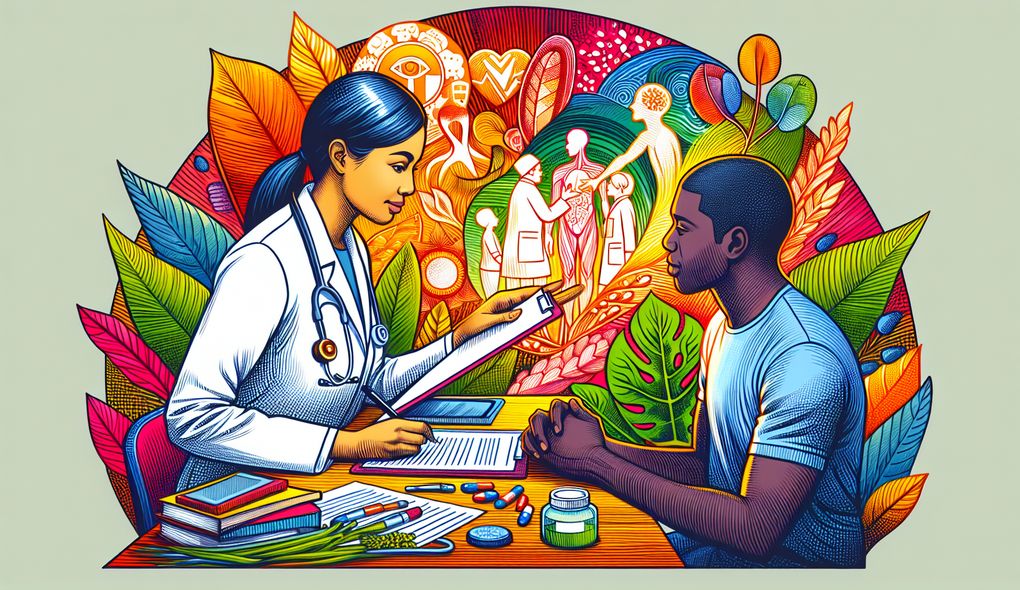Tell me about a time when you had to advocate for a patient's integrative treatment plan. How did you handle any resistance from other healthcare professionals?
JUNIOR LEVEL

Sample answer to the question:
During my time working at a holistic health clinic, I had a patient who was diagnosed with chronic pain. After a thorough evaluation, I believed that a combination of conventional medicine and alternative therapies would be the best approach. I presented this integrative treatment plan to the patient, explaining the potential benefits of each therapy. However, there was some resistance from the patient's primary care physician who preferred a purely conventional approach. To handle this, I scheduled a meeting with the physician to discuss the patient's case in detail and present the evidence supporting the integrative treatment plan. I emphasized the importance of an individualized approach to care and explained how the combination of therapies could address the root causes of the pain. After a productive discussion, the physician agreed to collaborate and support the integrative treatment plan.
Here is a more solid answer:
During my time working at a holistic health clinic, I encountered a situation where a patient was struggling with a complex digestive disorder. After thoroughly reviewing the patient's medical history and conducting a comprehensive evaluation, I realized that a combination of conventional medicine and alternative therapies, such as herbal medicine and dietary changes, could provide the best outcomes. When discussing this treatment plan with the patient, they were initially hesitant due to previous negative experiences with complementary therapies. However, I empathetically explained the evidence behind the integrative approach and the potential benefits for their specific condition. To ensure the patient felt supported, I arranged a meeting with their primary care physician and a nutritionist to discuss the proposed treatment plan. I presented the relevant research and shared success stories from other patients who had benefited from a similar approach. Through open communication and collaboration, we were able to address the patient's concerns and gain the support of the healthcare professionals. The patient experienced significant improvement in their symptoms and was grateful for the integrative treatment plan.
Why is this a more solid answer?
The solid answer provides a more comprehensive and detailed response to the question. It includes specific examples of the candidate advocating for a patient's integrative treatment plan, handling resistance, and demonstrating the required skills and qualities mentioned in the job description. However, it could further strengthen the answer by providing more context on the collaborative process with other healthcare professionals and the outcomes achieved.
An example of a exceptional answer:
During my tenure at a renowned integrative medicine center, I encountered a complex case involving a patient with a history of anxiety and insomnia. Despite multiple unsuccessful attempts with conventional treatments, the patient remained determined to find a solution for their debilitating symptoms. Recognizing the potential benefits of an integrative approach, I drafted a comprehensive treatment plan that incorporated cognitive-behavioral therapy, mindfulness practices, and herbal supplements known to support sleep and reduce anxiety. However, when presenting the plan to the patient's primary care physician, I encountered significant resistance due to skepticism about complementary therapies. To address this, I scheduled a meeting with the physician and the center's integrative medicine team, composed of an acupuncturist, nutritionist, and psychologist, to provide a holistic perspective on the patient's condition and the evidence supporting the proposed therapies. I shared relevant studies, expert opinions, and success stories from other patients who had achieved positive outcomes through integrative treatment. Through this collaborative effort, we were able to garner support for the plan, and the patient experienced a remarkable improvement in their sleep quality and anxiety levels. This success not only provided the patient with much-needed relief but also fostered a new level of openness to integrative medicine within the healthcare team.
Why is this an exceptional answer?
The exceptional answer goes above and beyond in addressing the question. It provides a detailed and compelling example that clearly demonstrates the candidate's ability to advocate for a patient's integrative treatment plan and handle resistance from other healthcare professionals. The answer includes specific details about the patient case, the proposed therapies, the collaborative effort, and the positive outcomes achieved. The candidate also effectively showcases their strong clinical skills, excellent communication and interpersonal skills, and the ability to work collaboratively within a multidisciplinary team.
How to prepare for this question:
- 1. Familiarize yourself with integrative medicine principles and therapies. Stay updated on the latest research and evidence supporting their effectiveness.
- 2. Reflect on your past experiences where you had to advocate for a patient's treatment plan or handle resistance from other healthcare professionals. Prepare specific examples to share during the interview.
- 3. Practice effective communication techniques, including empathetic listening, clear explanation of complex concepts, and use of evidence-based arguments.
- 4. Highlight your experience working collaboratively within a multidisciplinary team. Discuss instances where you successfully collaborated with other healthcare professionals to provide comprehensive care.
- 5. Show your commitment to ongoing education and professional development. Mention any relevant certifications, trainings, or memberships in integrative medicine organizations.
What are interviewers evaluating with this question?
- Strong clinical skills with an emphasis on holistic health
- Excellent communication and interpersonal skills
- Ability to work collaboratively within a multidisciplinary team

